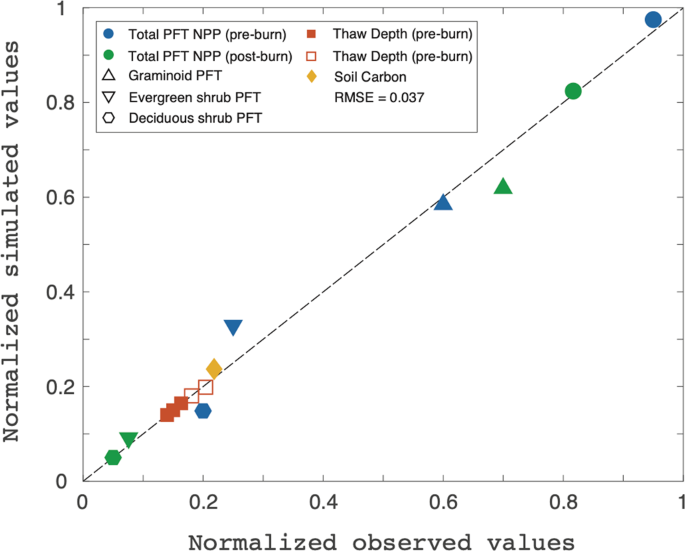北極圏の火災の強度と頻度が増加する中、バークレー研究所の科学者は、微生物が山火事後の状況に与える影響を研究し、微生物の活動が回復を早める可能性があることを示しました。 As Arctic fire intensity and frequency increases, Berkeley Lab scientists study microbes’ influence on post-wildfire conditions and show that more microbial activity may speed up recovery
2022-04-26 ローレンスバークレー国立研究所(LBNL)
<関連情報>
- https://newscenter.lbl.gov/2022/04/26/microbial-response-to-a-changing-and-fire-prone-arctic-ecosystem/
- https://www.nature.com/articles/s43247-022-00356-2
21世紀における火災後のツンドラ生態系回復に対する微生物の寄与 Microbial contribution to post-fire tundra ecosystem recovery over the 21st century
Nicholas J. Bouskill,Zelalem Mekonnen,Qing Zhu,Robert Grant &William J. Riley
Communications Earth and Environment
DOI:https://doi.org/10.1038/s43247-022-00356-2

Abstract
Tundra ecosystems have experienced an increased frequency of fire, and this trend is predicted to continue throughout the 21st Century. Post-fire recovery is underpinned by complex interactions between microbial functional groups that drive nutrient cycling. Here we use a mechanistic model to demonstrate an acceleration of the nitrogen cycle post-fire driven by changes in niche space and microbial competitive dynamics. We show that over the first 5-years post-fire, fast-growing bacterial heterotrophs colonize regions of the soil previously occupied by slower-growing saprotrophic fungi. The bacterial heterotrophs mineralize organic matter, releasing nutrients into the soil. This pathway outweighs new sources of nitrogen and facilitates the recovery of plant productivity. We broadly show here that while consideration of distinct microbial metabolisms related to carbon and nutrient cycling remains rare in terrestrial ecosystem models, they are important when considering the rate of ecosystem recovery post-disturbance and the feedback to soil nutrient cycles on centennial timescales.


